Time to Pull Weeds

I know there are people who love to garden. They enjoy nurturing seeds, planting bulbs, and planning perennial beds so that gorgeous flowers flourish in every season. My neighbor is one of them. I walk past her home (in the photos above and below) and sigh with envy at her creativity and diligence.

I am not one of those people. While I do love the end result when my garden looks pristine and welcoming, I don’t enjoy doing the work to make it so. Nevertheless, I was forced to become the family gardener when my husband pulled a muscle in his shoulder. The weeds had no pity on his injury and quickly staged a take-over. Can anyone explain to me why weeds are so hearty and fast-growing while their beautiful, cultivated cousins need pampering? Or why the deer and the rabbits ignore the weeds and munch on my plants as if they’re a salad bar?

As I tackled our overgrown garden last week, it occurred to me that the process has some similarities to the way I write. My first drafts are usually an overgrown tangle of words. My strategy is to conquer the blank page and get something down, no matter how bad, and then go back and fix it later. It takes away some of the anxiety if I don’t stop to critique my work as I write. But the day eventually comes when I have to weed out the overgrown mess. Finding weeds in the garden is usually simple: if the roots seem to go down to China, it’s probably a weed. If it pulls out easily—oops! That was probably something expensive. And when I make my first editing pass on my manuscript, it’s easy to find the weeds, especially if I remind myself of the rules of good writing.
I ended up with a large recycling bin full of weeds by the time I finished pulling them, but the garden still looked overgrown. I needed to go back with my shears and trim away some of the good bushes and plants, too. I hate doing that because I’m always afraid I’m going to cut too much and kill the plant. It’s the same with my manuscript. Even after the weeds of poor grammar have been pulled, my beautiful prose sometimes needs to be trimmed. If I’m in an especially critical mood, I can come dangerously close to chopping away too much and ruining it. But it has to be done.

The photos above and below show the results of my gardening efforts. And while I hated to sacrifice writing time for the task, when I finally sat down to write again I was able to tackle some much-needed editing with renewed fervor.

Now what about weeding my spiritual garden? Jesus said, “I am the vine; you are the branches” and “my Father is the gardener. He cuts off every branch in me that bears no fruit, while every branch that does bear fruit he prunes so that it will be even more fruitful.” That sounds a lot like gardening and editing, doesn’t it? God is looking for fruit like love, joy, and patience—and not weeds like anger, gossip, and bitterness. If I hope to look like my neighbor’s garden in Jesus’ eyes, I think I have some work to do.

- 4949
- 15
- 2




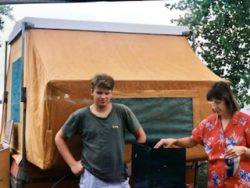 We awoke after our first night of camping to find that all four of the trailer’s tires had gone flat. After a trip into town to buy four new ones, we were on our way again. Once we arrived in the Rockies, we discovered that the trailer had a broken heater, so after a few very cold nights, we changed our plans and headed south to the Grand Canyon and warmer weather.
We awoke after our first night of camping to find that all four of the trailer’s tires had gone flat. After a trip into town to buy four new ones, we were on our way again. Once we arrived in the Rockies, we discovered that the trailer had a broken heater, so after a few very cold nights, we changed our plans and headed south to the Grand Canyon and warmer weather.












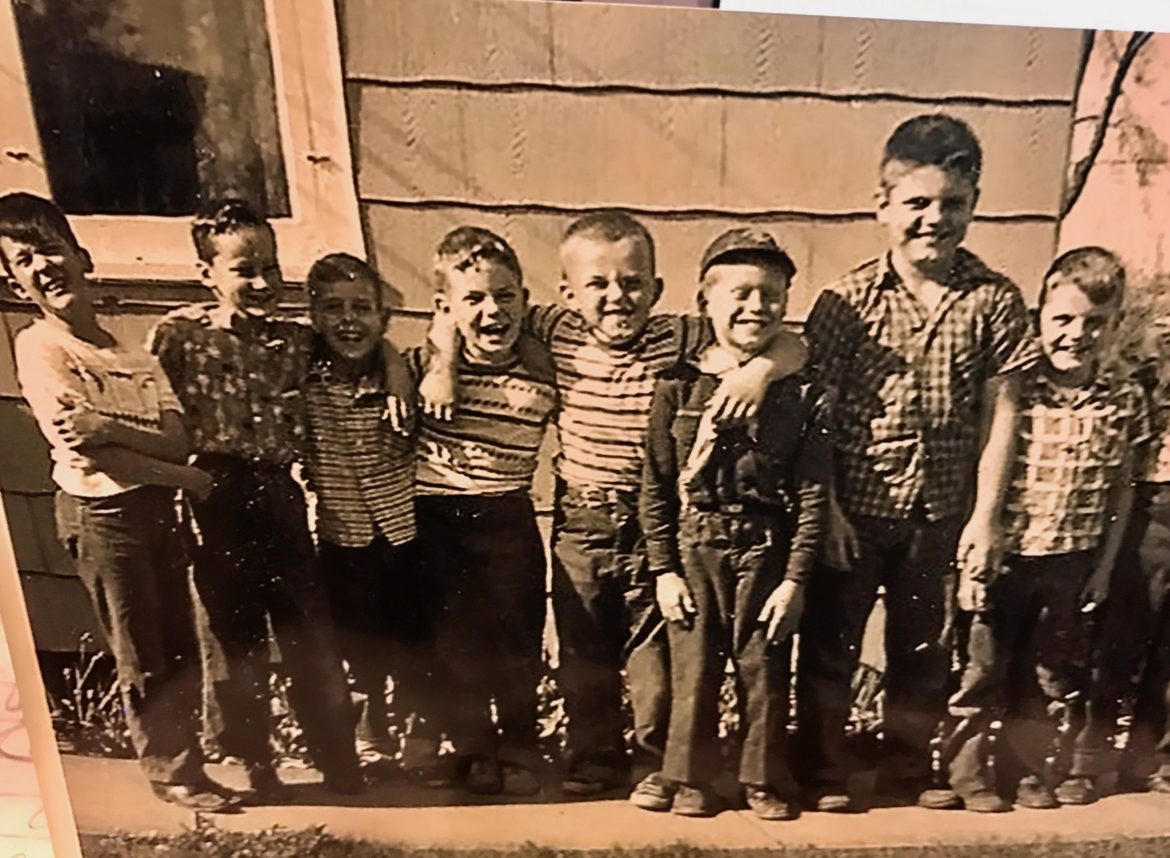
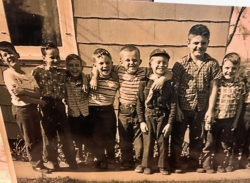
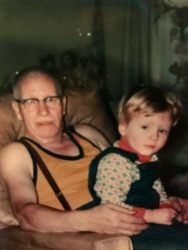
 This Christmas season, Charlie’s story challenges me to do two things. First, to never, ever, stop praying for family members to give their lives to Christ, no matter how long it takes. I’m praying that I’ll find the right opportunity this Christmas, and the right words to say in a loving way. And second, I’m challenged to make a commitment, like Charlie did, to faithfully pray for someone who has touched my life, even if I may never know if or when those prayers are answered.
This Christmas season, Charlie’s story challenges me to do two things. First, to never, ever, stop praying for family members to give their lives to Christ, no matter how long it takes. I’m praying that I’ll find the right opportunity this Christmas, and the right words to say in a loving way. And second, I’m challenged to make a commitment, like Charlie did, to faithfully pray for someone who has touched my life, even if I may never know if or when those prayers are answered.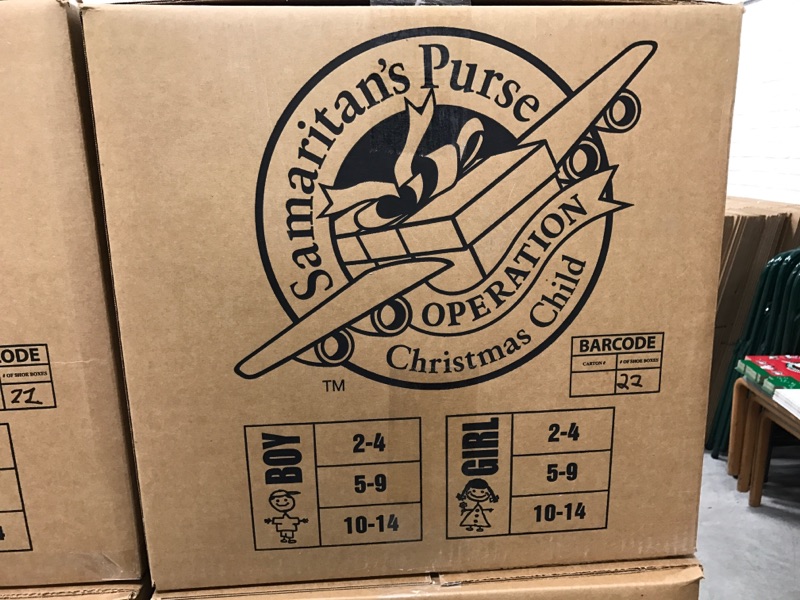
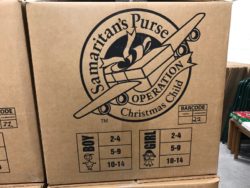 This year, our church was one of the drop-off points for
This year, our church was one of the drop-off points for 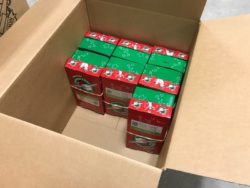 My job, along with my husband and our friends Paul and Jacki Kleinheksel, was to man the drop-off center for a few hours as people from our community brought in their filled boxes. We recorded the donations, wrapped rubber bands around the boxes to secure them, and packed them into shipping containers.
My job, along with my husband and our friends Paul and Jacki Kleinheksel, was to man the drop-off center for a few hours as people from our community brought in their filled boxes. We recorded the donations, wrapped rubber bands around the boxes to secure them, and packed them into shipping containers.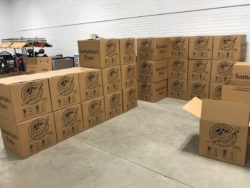 Another delivery was from a student representative at nearby
Another delivery was from a student representative at nearby  One of our jobs was to pray with the people who dropped off their boxes, asking God to bless the children who would receive them. I had tears in my eyes as the young mom and dad and their three little ones bowed their heads and prayed with us for “their” children, whose lives may be forever changed. And then, when I thought the moment couldn’t possibly get any sweeter, the littlest boy looked up at us and said, “Know what? I gave my life to Jesus this week!” The angels in heaven were surely having a party!
One of our jobs was to pray with the people who dropped off their boxes, asking God to bless the children who would receive them. I had tears in my eyes as the young mom and dad and their three little ones bowed their heads and prayed with us for “their” children, whose lives may be forever changed. And then, when I thought the moment couldn’t possibly get any sweeter, the littlest boy looked up at us and said, “Know what? I gave my life to Jesus this week!” The angels in heaven were surely having a party!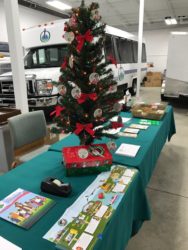 Jesus was right. I was richly blessed that night!
Jesus was right. I was richly blessed that night!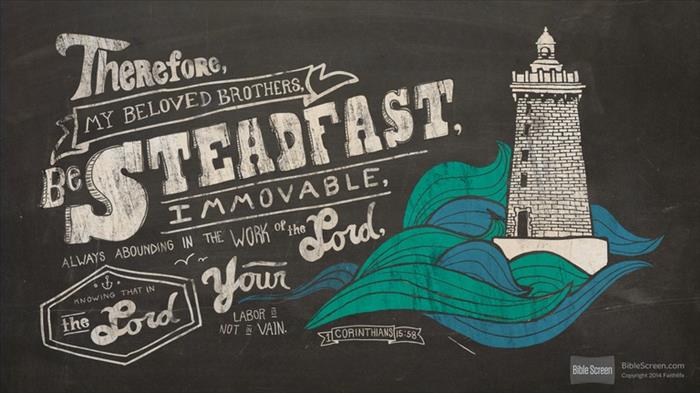

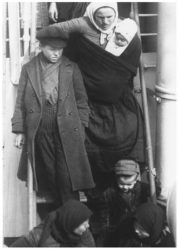 My newest novel, “Waves of Mercy,” (which releases on October 4) tells the true story of the Dutch immigrants who settled the town of Holland, Michigan in 1846. These faithful Christian men and women, who suffered religious persecution in the Netherlands, prayed about what to do and felt God leading them to America, where religious freedom was guaranteed. So they left beautiful, centuries-old cities to move to the virgin wilderness of Michigan and live in crude log cabins. The first summer, malaria struck the community killing many settlers. A year later, a ship called the Phoenix, carrying 225 passengers, including 175 Dutch immigrants, caught fire and sank in Lake Michigan, five miles from their destination. 180 men, women and children died. As the bewildered immigrants buried their loved ones, they must have asked, “Did we really hear from God? How could He allow these tragedies to happen?”
My newest novel, “Waves of Mercy,” (which releases on October 4) tells the true story of the Dutch immigrants who settled the town of Holland, Michigan in 1846. These faithful Christian men and women, who suffered religious persecution in the Netherlands, prayed about what to do and felt God leading them to America, where religious freedom was guaranteed. So they left beautiful, centuries-old cities to move to the virgin wilderness of Michigan and live in crude log cabins. The first summer, malaria struck the community killing many settlers. A year later, a ship called the Phoenix, carrying 225 passengers, including 175 Dutch immigrants, caught fire and sank in Lake Michigan, five miles from their destination. 180 men, women and children died. As the bewildered immigrants buried their loved ones, they must have asked, “Did we really hear from God? How could He allow these tragedies to happen?” I battled similar questions when writing my first novel, “Gods and Kings.” I had an opportunity to go to Israel on an archeological dig to research my book, and it seemed like an answer from God. To earn money for my trip, I babysat for three small children. My husband encouraged me to go and volunteered to take over while I was away. But a few days before I was supposed to leave, our three children came down with the chicken pox. Then we discovered that my husband had never had them, and he became extremely ill. I called the tour organizers to try to cancel or at least postpone my trip only to learn that it wasn’t refundable, nor could I re-book my flight. I would lose all of the money I had worked so hard to save. In spite of his illness, my husband still encouraged me to go—while someone from church called to say, “I think it’s clear that God wants you to stay home and be a wife and mother, not a writer.” Had I really heard from God about being a writer? Why had my family become sick at the worst possible time? I wrestled with God for answers.
I battled similar questions when writing my first novel, “Gods and Kings.” I had an opportunity to go to Israel on an archeological dig to research my book, and it seemed like an answer from God. To earn money for my trip, I babysat for three small children. My husband encouraged me to go and volunteered to take over while I was away. But a few days before I was supposed to leave, our three children came down with the chicken pox. Then we discovered that my husband had never had them, and he became extremely ill. I called the tour organizers to try to cancel or at least postpone my trip only to learn that it wasn’t refundable, nor could I re-book my flight. I would lose all of the money I had worked so hard to save. In spite of his illness, my husband still encouraged me to go—while someone from church called to say, “I think it’s clear that God wants you to stay home and be a wife and mother, not a writer.” Had I really heard from God about being a writer? Why had my family become sick at the worst possible time? I wrestled with God for answers.
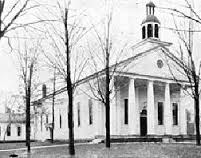
 “Therefore, my dear brothers and sisters, stand firm. Let nothing move you. Always give yourselves fully to the work of the Lord, because you know that your labor in the Lord is not in vain” (1 Corinthians 15:58).
“Therefore, my dear brothers and sisters, stand firm. Let nothing move you. Always give yourselves fully to the work of the Lord, because you know that your labor in the Lord is not in vain” (1 Corinthians 15:58).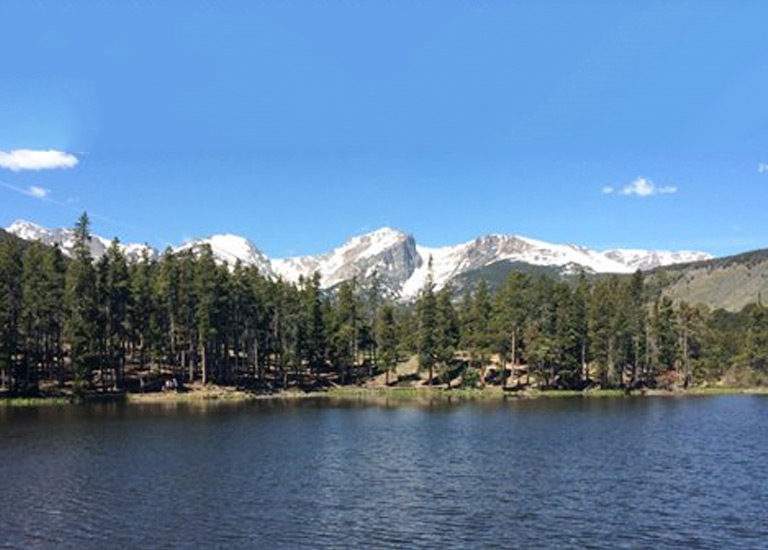
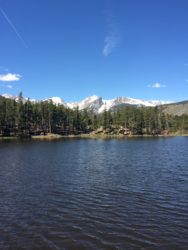 My husband and I just returned home from a week’s vacation in Rocky Mountain National Park in Colorado, and what a wonderful time we had! First of all, we were surrounded by God’s beautiful creation everywhere we looked—magnificent mountains, rushing streams, abundant wildlife. It was so easy to praise God every waking moment and remember His awesome majesty and power.
My husband and I just returned home from a week’s vacation in Rocky Mountain National Park in Colorado, and what a wonderful time we had! First of all, we were surrounded by God’s beautiful creation everywhere we looked—magnificent mountains, rushing streams, abundant wildlife. It was so easy to praise God every waking moment and remember His awesome majesty and power.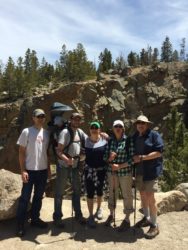 Second, I got to do one of my favorite activities every day—hiking in the woods. The scenery was refreshingly different from the familiar forests and beaches here in Michigan where I walk every day. There were mountains everywhere I looked!
Second, I got to do one of my favorite activities every day—hiking in the woods. The scenery was refreshingly different from the familiar forests and beaches here in Michigan where I walk every day. There were mountains everywhere I looked!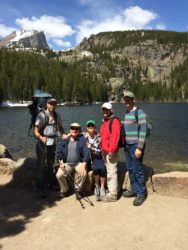 But best of all, we were able to spend time with one of our sons, our daughter, our son-in-law, and our grandbaby on this vacation. We shared a family cabin together and were able to relax and talk and eat and hike every day.
But best of all, we were able to spend time with one of our sons, our daughter, our son-in-law, and our grandbaby on this vacation. We shared a family cabin together and were able to relax and talk and eat and hike every day.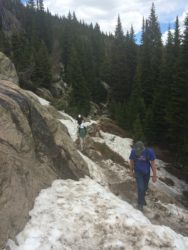 On our first day of hiking, I found myself huffing and puffing after about five minutes of walking. I thought I was in pretty good shape—what was wrong with me? The answer, of course, was “thin air.” Our cabin was located at an elevation of 8,000 feet and we hiked even higher than that every day. Someone explained to me that oxygen is 45% less dense at that altitude, which explains why I was gasping! Things that were easy to do back home became a lot harder in such thin air.
On our first day of hiking, I found myself huffing and puffing after about five minutes of walking. I thought I was in pretty good shape—what was wrong with me? The answer, of course, was “thin air.” Our cabin was located at an elevation of 8,000 feet and we hiked even higher than that every day. Someone explained to me that oxygen is 45% less dense at that altitude, which explains why I was gasping! Things that were easy to do back home became a lot harder in such thin air. As I thought about that fact, I realized why my writing hadn’t been going so well. Scripture sometimes compares the Holy Spirit to air or wind. Jesus promised His disciples that they would receive power from on high when the Spirit came, and indeed, they were transformed when the rushing wind from heaven blew on the Day of Pentecost and they were filled with the Holy Spirit. We all need the Holy Spirit’s power to accomplish the work God gives us to do. But I sometimes forget that, and I try to write on “thin air,” relying on my own experience and knowledge instead of on the Spirit’s inspiration. No wonder I huff and puff!
As I thought about that fact, I realized why my writing hadn’t been going so well. Scripture sometimes compares the Holy Spirit to air or wind. Jesus promised His disciples that they would receive power from on high when the Spirit came, and indeed, they were transformed when the rushing wind from heaven blew on the Day of Pentecost and they were filled with the Holy Spirit. We all need the Holy Spirit’s power to accomplish the work God gives us to do. But I sometimes forget that, and I try to write on “thin air,” relying on my own experience and knowledge instead of on the Spirit’s inspiration. No wonder I huff and puff! My prayer, as I return to my desk and my work-in-progress this week is summed up in one of my favorite choruses: “Spirit of the living God, fall afresh on me . . .”
My prayer, as I return to my desk and my work-in-progress this week is summed up in one of my favorite choruses: “Spirit of the living God, fall afresh on me . . .”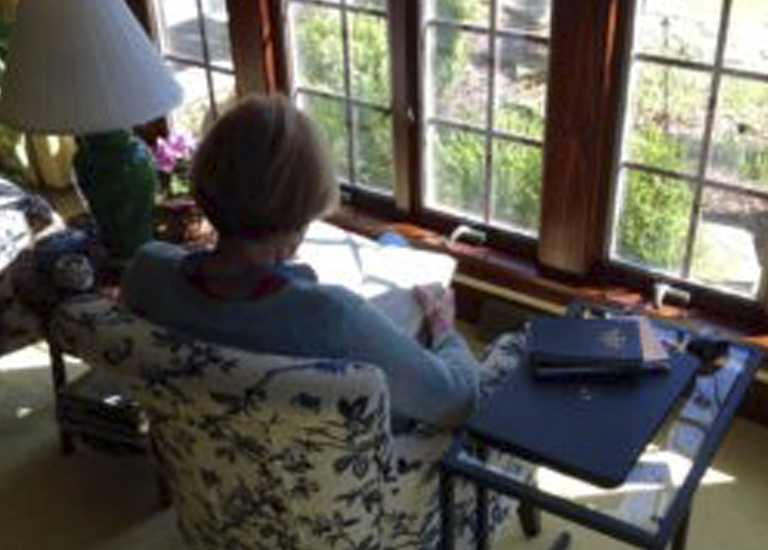
 The azalea bush outside my living room window is putting on a glorious show this spring. I can see it from my favorite living room chair where I sit for my quiet time every morning. But I can also see how dusty and rain-streaked my windows are after the long winter months. So last Saturday, when the temperature climbed to nearly 70 degrees, I got out the buckets and rags and window cleaner to tackle the job. The window glass is divided into dozens of tiny panes that have to be individually washed, making the task . . . well . . . a pain!
The azalea bush outside my living room window is putting on a glorious show this spring. I can see it from my favorite living room chair where I sit for my quiet time every morning. But I can also see how dusty and rain-streaked my windows are after the long winter months. So last Saturday, when the temperature climbed to nearly 70 degrees, I got out the buckets and rags and window cleaner to tackle the job. The window glass is divided into dozens of tiny panes that have to be individually washed, making the task . . . well . . . a pain! Then I got up on Sunday morning.
Then I got up on Sunday morning.
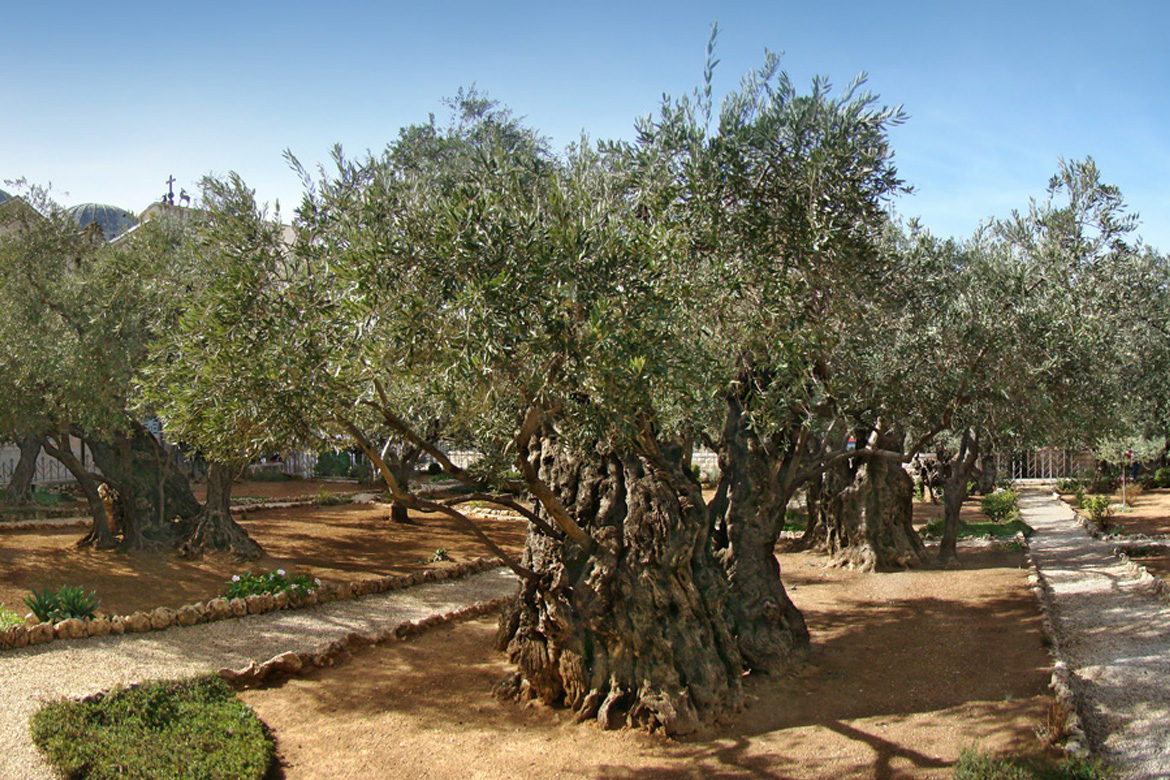
 The Feast of Passover begins this Friday at sundown. My Jewish friends, who call it Pesach, are busy cleaning their houses in preparation, careful not to leave a single crumb of leaven. They even vacuum their sofa cushions, something I probably should do more often.
The Feast of Passover begins this Friday at sundown. My Jewish friends, who call it Pesach, are busy cleaning their houses in preparation, careful not to leave a single crumb of leaven. They even vacuum their sofa cushions, something I probably should do more often.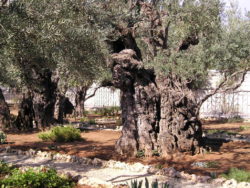
 I marvel at how the Passover Feast has endured. It began with Moses on that long-ago night in Egypt and is celebrated some 3,400 years later. God’s people have also endured, just as He promised: “Only if the (sun, moon and stars) vanish from my sight,” declares the Lord, “will the descendants of Israel ever cease to be a nation before me” (Jeremiah 31:36).
I marvel at how the Passover Feast has endured. It began with Moses on that long-ago night in Egypt and is celebrated some 3,400 years later. God’s people have also endured, just as He promised: “Only if the (sun, moon and stars) vanish from my sight,” declares the Lord, “will the descendants of Israel ever cease to be a nation before me” (Jeremiah 31:36).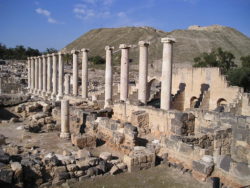
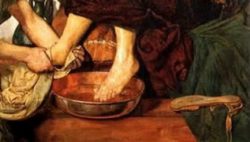 Each year before celebrating the feast, I love to reread the story of Christ’s final Passover meal and the lessons He taught us that night (John 13-17). He began by washing His disciples’ feet, saying, “I have set you an example…no servant is greater than his master.” He commanded us to love one another saying, “By this all men will know that you are my disciples, if you love one another.” He told us that His Father’s house had many mansions and that He was going to prepare a place for us. He promised to send the Holy Spirit to empower us. And He gave us the beautiful picture of the vine and the branches, encouraging us to bear much fruit for His Father’s glory. He ended by praying for us: “May they be brought to complete unity to let the world know that you sent me…”
Each year before celebrating the feast, I love to reread the story of Christ’s final Passover meal and the lessons He taught us that night (John 13-17). He began by washing His disciples’ feet, saying, “I have set you an example…no servant is greater than his master.” He commanded us to love one another saying, “By this all men will know that you are my disciples, if you love one another.” He told us that His Father’s house had many mansions and that He was going to prepare a place for us. He promised to send the Holy Spirit to empower us. And He gave us the beautiful picture of the vine and the branches, encouraging us to bear much fruit for His Father’s glory. He ended by praying for us: “May they be brought to complete unity to let the world know that you sent me…”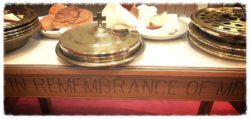 Communion is our celebration feast when we remember Christ’s sacrifice. We begin by searching our souls for every speck of sin. We go to the Lord’s table to partake of His body and blood in the bread and wine. We leave the covenant meal cleansed, free from slavery to sin, empowered to bear fruit as He commanded. And we leave with a sense of peace, knowing that the Pharaohs and rulers of this world won’t last, but God’s kingdom will endure for all time. “Take heart!” Jesus told us on that long-ago Passover night. “I have overcome the world.”
Communion is our celebration feast when we remember Christ’s sacrifice. We begin by searching our souls for every speck of sin. We go to the Lord’s table to partake of His body and blood in the bread and wine. We leave the covenant meal cleansed, free from slavery to sin, empowered to bear fruit as He commanded. And we leave with a sense of peace, knowing that the Pharaohs and rulers of this world won’t last, but God’s kingdom will endure for all time. “Take heart!” Jesus told us on that long-ago Passover night. “I have overcome the world.”